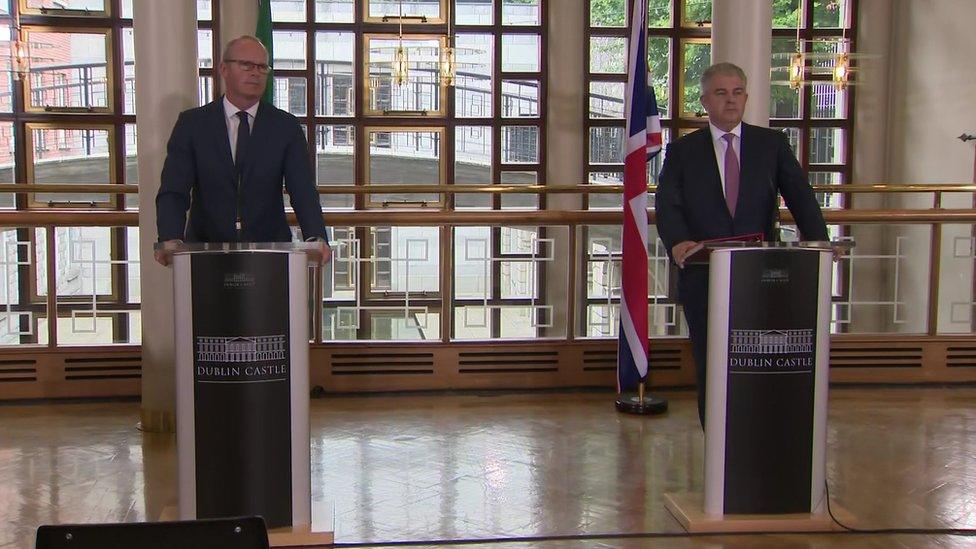Legacy cases: Stormont House Agreement must not be 'rewritten'
- Published

Michelle O'Neill has warned against "going around" the Stormont House Agreement
A new process from the UK and Irish governments on legacy issues in Northern Ireland must not "rewrite" the Stormont House Agreement, the deputy first minister has said.
The governments have agreed "a process of intensive engagement" with parties and groups in Northern Ireland.
First Minister Paul Givan said he was looking forward to engagement with the NI secretary on the matter.
However, Michelle O'Neill has warned against "going around" the agreement.
The Stormont House Agreement, signed in 2014, committed to a number of new initiatives around legacy cases, including a Historical Investigations Unit to examine unsolved murders carried out during the Troubles.
Following a meeting of the British-Irish Intergovernmental Conference (BIIGC) on Thursday, Northern Ireland Secretary Brandon Lewis and Irish Foreign Minister Simon Coveney announced a new process to engage with families of victims, political parties and other stakeholders to talk about the way forward.
The process will "build on and develop on the principle of the Stormont House Agreement", Mr Lewis said.
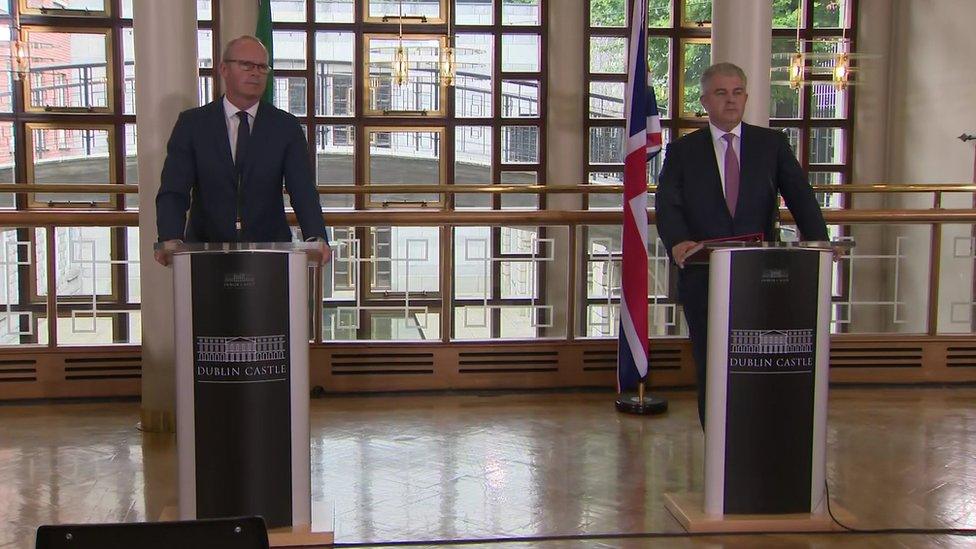
Simon Coveney and Brandon Lewis announced the new process on Thursday
The UK government has said it wants to bring forward new proposals before Parliament's summer recess.
Earlier this year, it indicated it wanted a ban on all prosecutions related to the Troubles under a statute of limitations.
The idea is a major departure from the Stormont House Agreement.
It was met with an angry reaction across the political spectrum and among victims' groups.
'We need delivery on the agreement'
Sinn Féin vice-president Ms O'Neill said she believed the UK government was "hell-bent on ripping up the Stormont House Agreement".
"They are progressing another conversation around how to deal with the past whenever that was dealt with sufficiently back with the Stormont House Agreement, which all parties and the two governments signed up to," she said.
"What we need now is delivery upon what was agreed previously."
She said there could not be any rewriting of the agreement without "the full support of all the parties and the support of both governments".
"I very much will be looking towards the Irish government to hold the British government's feet to the fire around the fact that they can't unilaterally take action and go right around the Stormont House Agreement," she said.
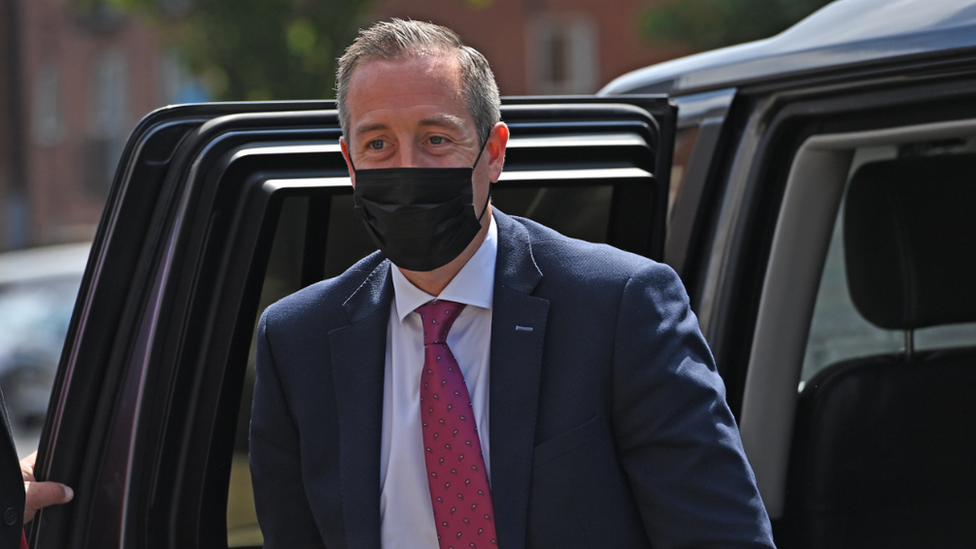
Paul Givan said he was looking forward to engaging with Brandon Lewis on the issue
Meanwhile, Mr Givan said legacy issues had been "well documented now for many years", adding the Democratic Unionist Party (DUP ) would be "up for that continued engagement".
Victims groups have said the new engagement process "must deliver".
The WAVE Trauma Centre, which works with victims of the Troubles, said it welcomed the announcement as long as the governments were "true to their word".
"We have been promised engagement before, this time they need to honour their commitment," said the group in a statement.
"Victims and survivors cannot continue to be sidelined."
Innocent Victims United (IVU) urged against amnesties, saying that both the UK and Ireland must commit to disclose the "maximum information supported by resourcing packages".
Kenny Donaldson, the group's spokesperson, also called for a formal acknowledgement process to be "front and centre".
'Victims must not be ignored'
"The UK and the Republic of Ireland, plus terrorist organisations and their political annexes, must collectively state that in the context of the Troubles there was no legitimacy for the use of criminal violence in the pursuance of or defence of a political objective," said Mr Donaldson.
He called for the strengthening of laws around the glorification of terrorism.
"Any solution on legacy which fails to secure the support of the IVU constituency has no credibility," he added.
"As the largest constituency of victims/survivors, IVU must not be ignored."
- Published18 March 2020
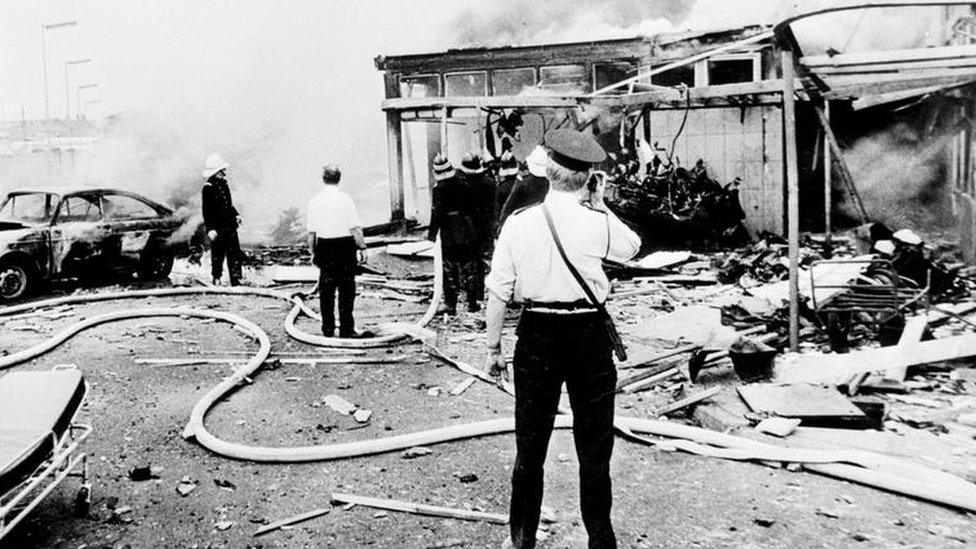
- Published23 December 2014
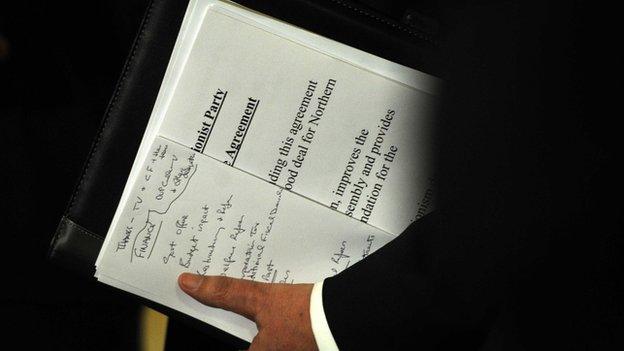
- Published26 October 2020
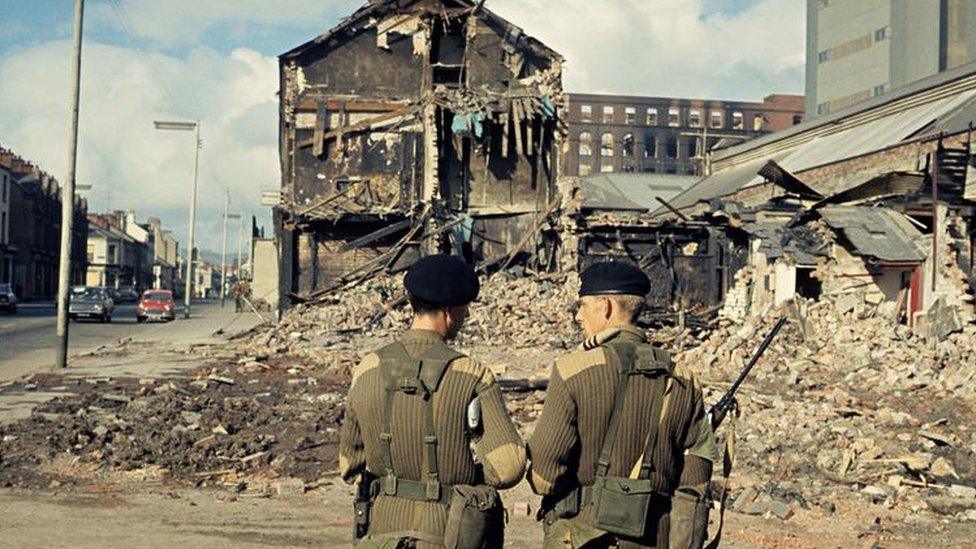
- Published24 June 2021
